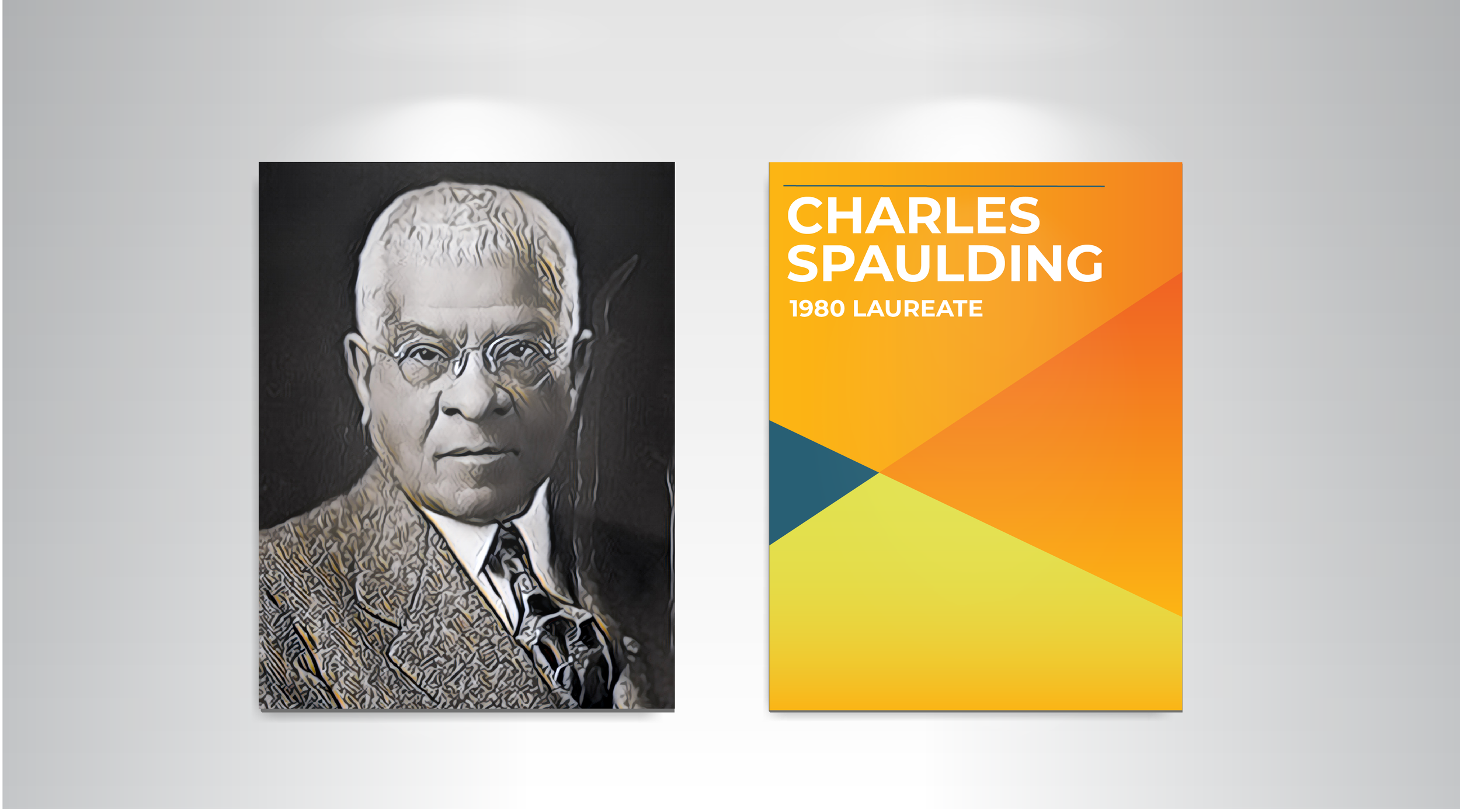
A descendent of a long-standing community of free Black landholders, Charles Spaulding earned an international reputation as America’s leading Black businessman as President of North Carolina Mutual.
-
1874
Born (USA)
-
1889
Becomes the manager of an all-Black cooperative grocery store
-
1899
Joins North Carolina Mutual and Provident Association part-time
-
1908
Becomes Vice-President of North Carolina Mutual
-
1923
Becomes President of North Carolina Mutual
-
1980
Inducted into the Global Business Hall of Fame
Charles Clinton Spaulding was born in 1874 in Columbus County, North Carolina, USA, to a farming family. At age 20, Charles left his family’s farm and moved to Durham, North Carolina, where he completed the equivalent of a high school education. He held several positions, including dishwasher, waiter, bellhop, office boy, and manager of a grocery cooperative.
In Durham, Charles lived with his uncle Aaron Moore. In 1898, Aaron and six other Black entrepreneurs founded the North Carolina Mutual and Provident Association, but because the seven founders had other careers to attend to, they hired Charles to sell policies, having taken note of his managerial skills during his time at the grocery cooperative.
Charles was an early proponent of saturation advertising, providing local businesses with promotional items bearing the company’s name. North Carolina Mutual also began advertising nonprofits like North Carolina College, the YMCA and YWCA, White Rock Baptist Church, St. Joseph's AME Church, and more.
When he became president of North Carolina Mutual in 1923, he earned an international reputation as America’s leading Black businessman and earned praise for reorganizing the company in the early 1930s, ensuring its survival through the Great Depression. In addition to North Carolina Mutual, Charles led its extended family of businesses, including Mechanics and Farmers Bank, Bankers Fire Insurance Company, and Mutual Savings and Loan association. He even served as a member in U.S. President Herbert Hoover’s Federal Relief Committee.
North Carolina Mutual was the largest Black-owned business in the U.S. during Charles’s leadership from 1920–1953, bringing the phrase “Black Wall Street” to the city of Durham.
In addition to his professional achievements, Charles made a number of notable accomplishments:
Served as national chairman of the Urban League’s Emergency Advisory Council in the 1930s
Campaigned to secure New Deal jobs for Black Americans
Served as chairman of the Durham Committee on Negro Affairs
Engaged in voter registration efforts and convinced Durham city officials to hired Black police officers
Served as a trustee for Howard University, North Carolina College, Shaw University, and the John F. Slater Fund
A Global Force for Good
Charles and his colleagues work in the Durham Committee on Negro Affairs worked to correct the inequalities of the Jim Crow system and bring about Black reenfranchisement (regaining the right to vote) 20 years sooner than in comparable cities in the southern United States. Known for his business leadership, Charles was also heavily involved in political and educational issues and decision-making. He featured prominently in the Democratic party, especially during the formulation of the New Deal, making influential recommendations to U.S. President Franklin D. Roosevelt.




